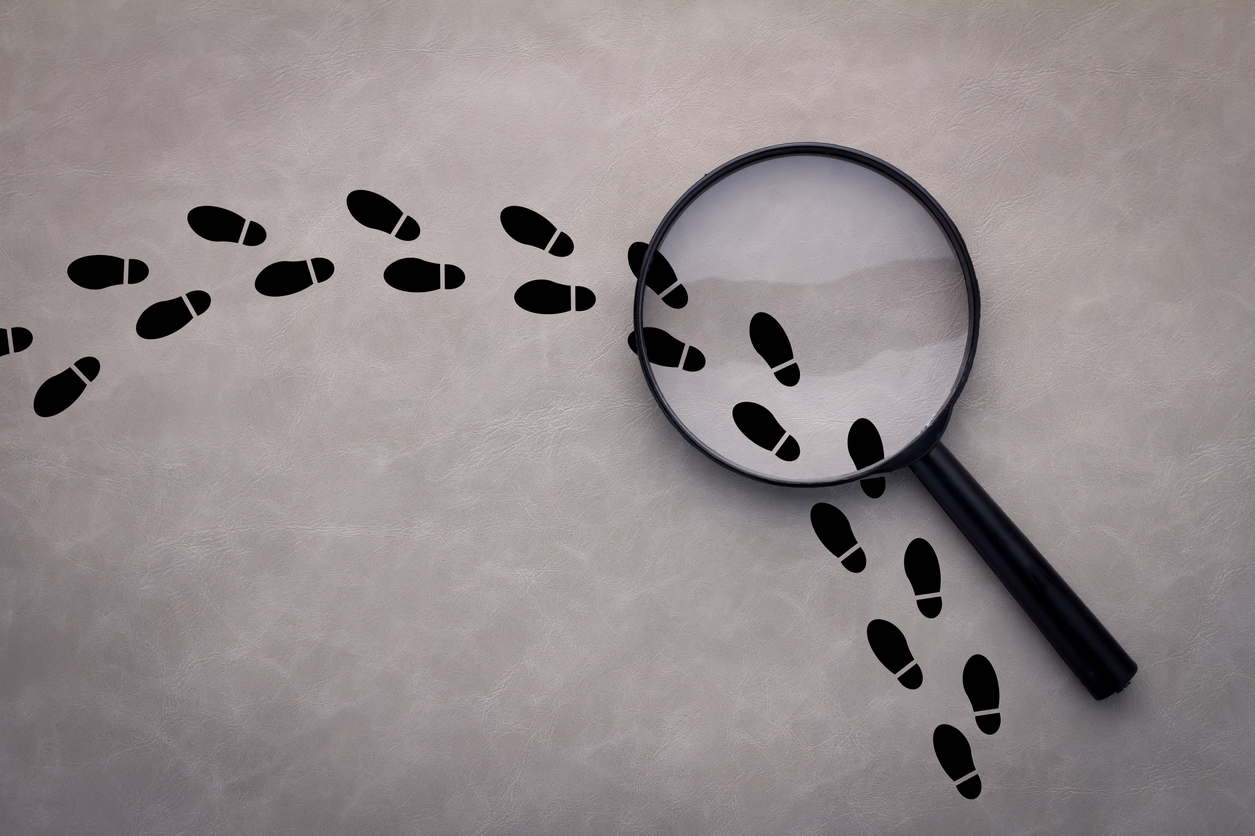
“Skepticism: The mark if not the pose of the educated mind.” John Dewey
An award of economic damages relies on a plaintiff’s ability to prove that the defendant’s action caused a loss. While causation is a factor in each engagement, counsel does not always explicitly request that financial experts consider causation in their analysis. Sometimes causation may not be disputed, such as a wrongful death, but other times the link between the defendant’s actions and the loss is less clear. In these cases, even if not specifically requested, a CPA expert should not hesitate to dig beyond the surface of the documents they receive from their clients when preliminary evidence indicates the alleged loss may have resulted from something other than the defendant’s actions. Throughout an engagement, the CPA expert must exert “professional skepticism.”

Professional skepticism looks beyond what is readily apparent.
Professional skepticism falls under the AICPA’s third General Standard requiring Due Professional Care in the Performance of Work (AU Section 230). Professional skepticism is an attitude. Experts exercise professional skepticism by scrutinizing evidence with an inquisitive mind that is always on the lookout for red flags, inconsistent facts, and questionable assumptions.
Red Flags Lead to Further Investigation
Morones Analytics was recently retained by an insurance company to assess claims submitted as part of an insurance settlement investigation. The plaintiff claimed that he was no longer able to work as a result of an automobile accident. The plaintiff’s attorney prepared a settlement demand based on pre-accident compensation of $500,000 per year stemming from multiple, active, and ongoing partnerships. The attorney supported the claim by showing that the plaintiff’s annual tax returns evidenced a drop in his income in the same year as the accident, a “but for” argument that the accident had caused the income loss. “But for the accident, my client would have made an extra $500,000 that year.”
Multiple facts kicked in our professional skepticism antennae, making us question whether the plaintiff’s claim relied on misplaced causation, post hoc ergo propter hoc:
- The plaintiff held membership in multiple professional service partnerships. However, he did not hold the education or credentials that would enable him to provide the professional service. Considering that the plaintiff was not a revenue generator, it did not make sense that the companies’ incomes would significantly decrease in his absence. (The plaintiff actually claimed that the companies ceased doing business as a result of his accident.)
- The plaintiff’s deposition casually referenced a dispute between himself and one of the minority partners. The plaintiff was dismissive and implied that the other partner had over-reacted, but that the matter had settled satisfactorily. However, the deposition did not clarify the timing of the dispute, making us wonder about details including whether it could have reduced partnership income as claimed.
- The plaintiff stated that he had not spoken to his partners since the accident. The lack of communication between partners struck us as unusual for a going concern—and certainly one that risked suffering such staggering losses if the plaintiff couldn’t appear at work. Professional skepticism required us to question why the plaintiff’s inability to perform his administrative duties physically would have shut down communication completely when all of the partners would have had an interest in keeping the business afloat during the plaintiff’s absence.
- Finally, the plaintiff justified the $500,000 of claimed lost income on estimates of pre-accident income from his contracts with multiple companies that compensated him for administrative services. However, our instincts led us to review the prior year tax returns, which revealed that the plaintiff had not received the level of compensation that he had claimed. Thus, professional skepticism revealed that the plaintiff overstated his pre-accident income earnings.
Rather than simply assuming causation, we investigated beyond the simple story told by the plaintiff and the documents he produced.

Here’s where we looked, and what we found in this case:
- Our thorough review of social media revealed that prior to the plaintiff’s accident, one of the companies had posted on Facebook that it would be going out of business. Potential loss of income from a dissolving company became a questionable element of the case.
- We searched state records and discovered that the plaintiff had been a defendant in a criminal complaint. We requested a copy of the complaint and learned that the criminal matter was a result of the dispute between the plaintiff and his business partner. A brief aside in the plaintiff’s deposition had opened us to this line of inquiry, which otherwise would have gone unchecked.
- We searched for other businesses associated with the plaintiff’s partners. Interestingly, two of the revenue generating partners had started their own professional practices in the months prior to the plaintiff’s accident. This ship jump again made the amount of potential loss seem overstated given the emerging picture of a precarious business environment.
- We requested that the plaintiff provide copies of his employment contracts, which were the basis for his claimed pre-accident income. Of the contracts we received, only one was signed, but it was no longer effective. The other employment contracts had not even been signed.
Based on the above findings, our client contacted the plaintiff’s former business partners, whose collaboration with the case helped confirm that the plaintiff’s decrease in business income was not a result of the accident. Our professional skepticism contributed to the settlement of this case in mediation, for an amount significantly less than the original demand.
Any damage expert could have calculated the plaintiff’s lost income assuming causation. However, clients rely on financial experts to sufficiently support any damage calculation, and the importance of professional skepticism cannot be understated in achieving that end.




